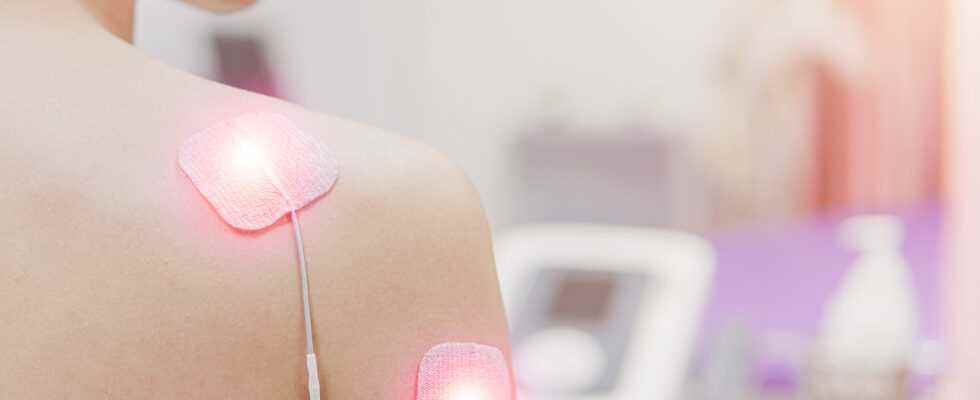So if the pain doesn’t go away with conventional therapy, it can be worth using a TENS device for support. Apart from possible skin irritations, there are no side effects to worry about.
However, people who suffer from epilepsy or mental illnesses, who are pregnant, who wear a cardiac pacemaker or built-in defibrillator should refrain from treatment with TENS devices. This also applies to PPersons with acute organ or joint inflammation.
TENS devices are used in two ways: Treatment with higher frequencies between 80 and 150 Hertz is intended to prevent the pain signals from the body from being passed on to the brain. The sensation of pain is therefore suppressed. In contrast, low frequencies between two and four hertz are said to cause the brain to form chemical substances that can also cause perceived pain relief.
